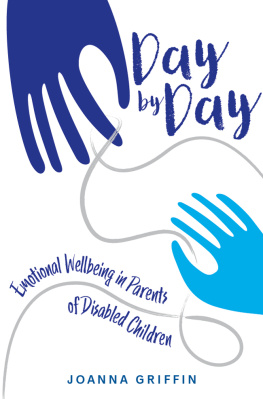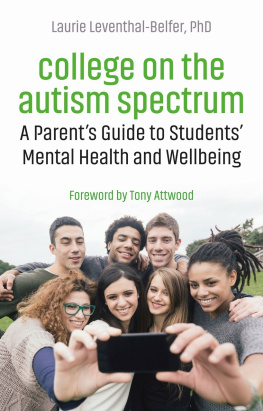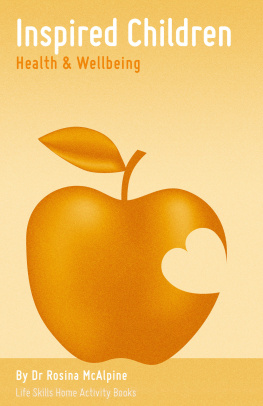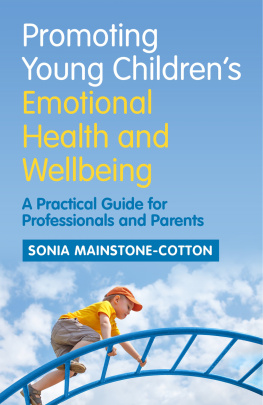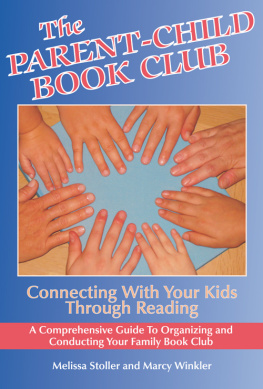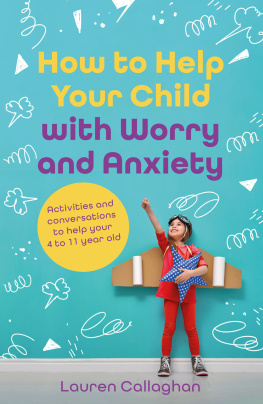

Emotional Wellbeing in Parents
of Disabled Children
JOANNA GRIFFIN

First published in 2021 by
Free Association Books
Copyright 2021 Joanna Griffin
The authors rights are fully asserted. The right of Joanna Griffin to be identified as the author of this work has been asserted by them in accordance with the Copyright, Designs and Patents Act 1988
A CIP Catalogue of this book is available from the British Library
eISBN: 978-1-9113835-3-6
All rights reserved; no part of this publication may be reproduced, stored in a retrieval system, or transmitted, in any form or by any means, electronic, mechanical, photocopying, recording or otherwise, without the prior written permission of the publisher. Nor be circulated in any form of binding or cover other than that in which it is published and a similar condition including this condition being imposed on the subsequent purchaser.
Cover design and typesetting by
www.chandlerbookdesign.co.uk
Printed and bound in Great Britain by
Short Run Press Limited
CONTENTS
Dedicated to A., J., B. & O.
Part 1
Introduction
Why I Wrote this Book
The Beginning
When my son was born, he was as close to death as it is possible to be. His pale, limp body was seemingly lifeless. I watched, uncomprehendingly, as the doctors put a tube in his mouth and pressed repeatedly on his chest, so hard that it broke several of his ribs. I held my breath, willing his to come. A twenty-three minute resuscitation which I can barely describe. Lying like a slab of meat on the table as I was sewn up. Time suspended, my mind frozen.
The matron, tight-lipped and concerned, reminded the paediatricians as they started wheeling him out to Intensive Care, Mum hasnt seen the baby. He was wheeled back in for me to see. Alive, but only just. I looked at him and smiled, despite knowing inside that this isnt how things are supposed to be. Denial and shock intertwined and misfired like a short circuit in my head. The idealised version I had imagined, long dead and forgotten. My womb ached. My stomach felt hollowed out. There was a silent primitive howl from my body.
When, shortly after birth, my son was diagnosed with cerebral palsy, I felt I had fallen into an abyss from which I would never recover. I can still hear the consultants words, carefully chosen: unlikely to walk, signs of visual impairment and I know this is not what a young couple like you want to hear about your first child. I didnt know where to look, how to sit, what I was supposed to do in response. I didnt feel real. Unravelling, we were plunged into previously inconceivable psychic wounds, due to the number of invasive medical interventions. One of his first cries was a scream that echoed down a long, desolate corridor as they inserted another needle into his tiny foot. The juxtaposition of his beautiful, soft skin next to hospital tubes and machines attached to every limb. I felt such a deep heartache that it has taken a long time to make any sense of it.
Not for us the euphoric moment I had dreamt of when first meeting our baby. There was no happy release of emotion, after twenty-nine hours of labour, in the delighted embrace of our first child. Instead, there were ever more doctors filling up the room, and the horrific realisation that something was seriously wrong. Seeing his eyes rolled up into the back of his head due to the medication given to prevent further seizures. Being given a photo of him as if this would be the last thing we had of him. My inability to remember my parents telephone number to tell them the news. Finally getting through and hearing myself say, you need to come and see him because he might not survive; words no parent wants to use to announce the arrival of a first beloved and longed-for grandchild.
I can time-travel to these memories easy to fly back to, but still so painful to recall. The thought of how things could have been different is faded but still present at times.
Our Story
My husband and I met at university and after a number of years of following our own paths met again, coincidentally, in North London where we were both living. We married soon after and our conversations about our future together always involved children. I wanted a large number, three or four, close together as I had been the youngest by eight and ten years in my family and liked the idea of the close-knit siblings all playing together. My husband, always the more rational one, preferred two with a good space between them. As both of us were keen on sports, me at running and him at football, we joked about how sporty our children would be and that wed spend all our free time ferrying them around to different activities.
I had trained as a Counselling Psychologist for many reasons but it especially appealed to me because it was adaptable to part-time working and being self-employed at home, which would help with childcare. I wanted to be the main caregiver as children had been my life plan since as young as I could remember. I love seeing how children grow, develop, learn and become their own little personality. Id received a first in my Psychology degree including in the Child Development Section so I (naively!) felt as ready as one could be for what lay ahead. Little did I know.
Unfortunately, I do not think my experience helped me much in what happened. I had worked in General Practitioners surgeries in the National Health Service (NHS), charities and other settings with adults on the autism spectrum. Despite knowing the system and how services connected to one another (to a certain extent), when I needed to use those services as a parent I was absolutely bowled over by how complex, unhelpful and frustrating health, education and social services could be and where and how to get the support that you need. I didnt have the words or understanding of how I could be emotionally floored yet unable to find somewhere I could fully articulate how I was feeling. I needed someone to help me rediscover my own compass. I hope I can help you, in some way, by writing this book.
The Early Years
Our sons traumatic birth set the tempo for the next few years. Initially it was physical things that were a struggle, then as my son got older the behavioural and cognitive challenges became the biggest fear and worry. I sometimes wondered if I could take any more diagnoses or difficulties being thrown at us and our tiny, darling boy. Did the professionals giving these diagnoses have any idea how devastating they were to hear? Did they believe they were providing something useful or just a list of facts with little understanding of their impact?
Over time my psychological strength was worn down and my ability to take on any more pain depleted. Just as wed assimilated one bit of news and started moving forward we were hit with another. Being bombarded with ever increasing appointments and advice for supporting him felt like I was expected to be able to rectify the problems caused by his difficult birth. I held onto information Id been told about the importance of brain plasticity in children and hence believed that if I worked hard enough I may be able to overcome his brain damage. If only I could be a good enough physiotherapist, speech therapist or psychologist. I now realise there is a limit to what plasticity can achieve but this added to the pressure I placed on myself.
Next page
